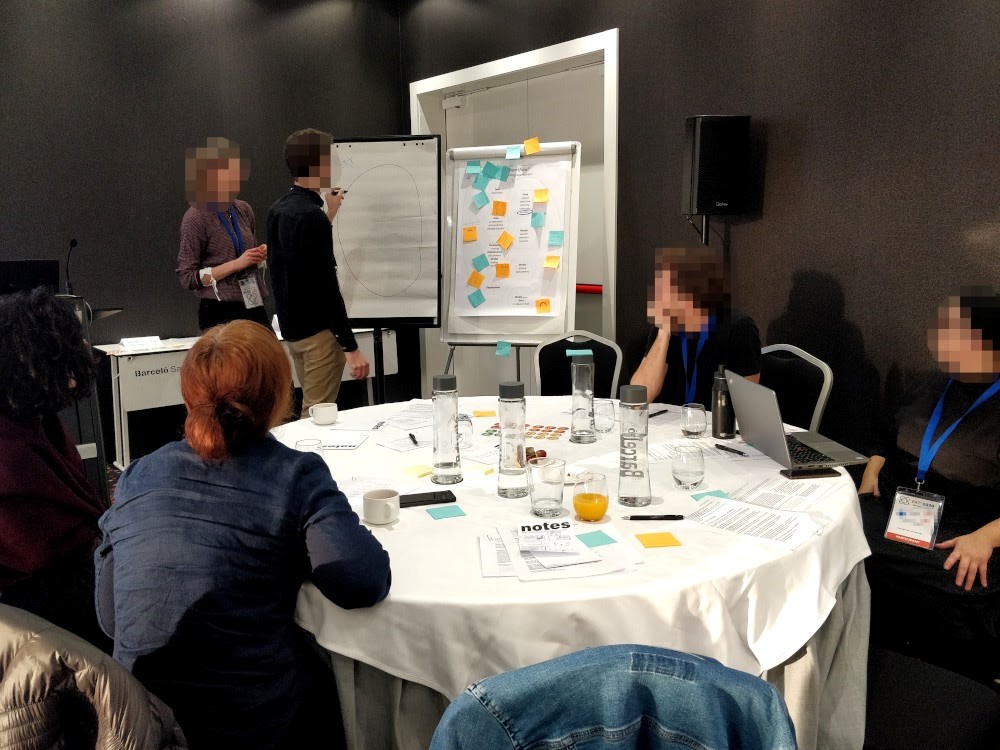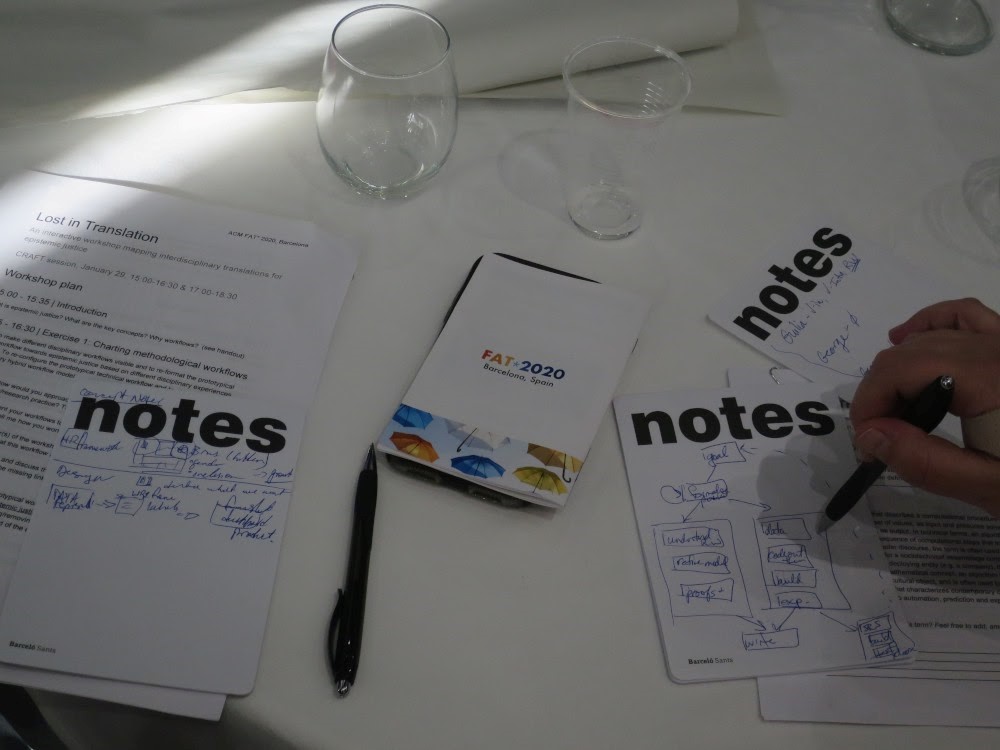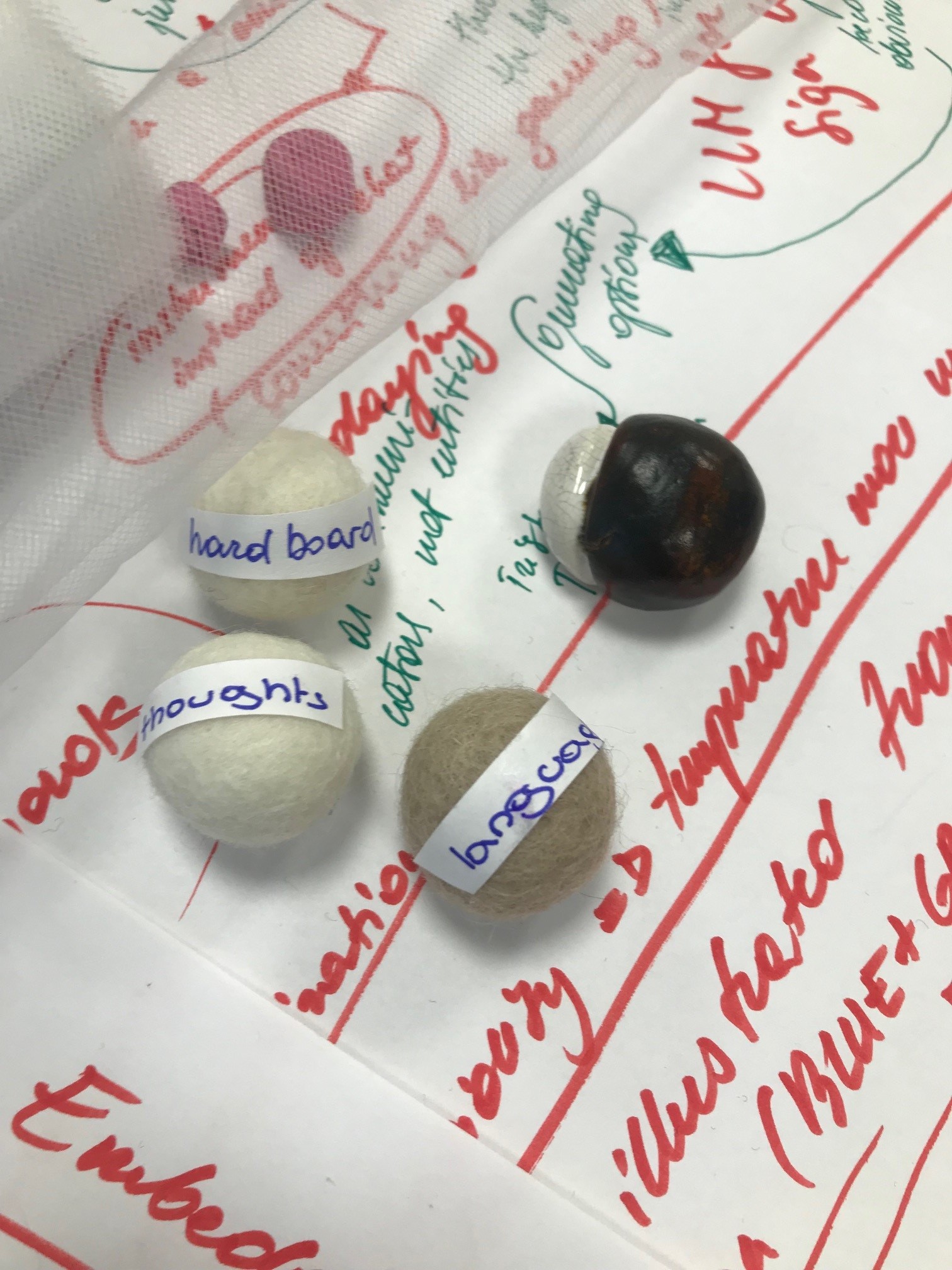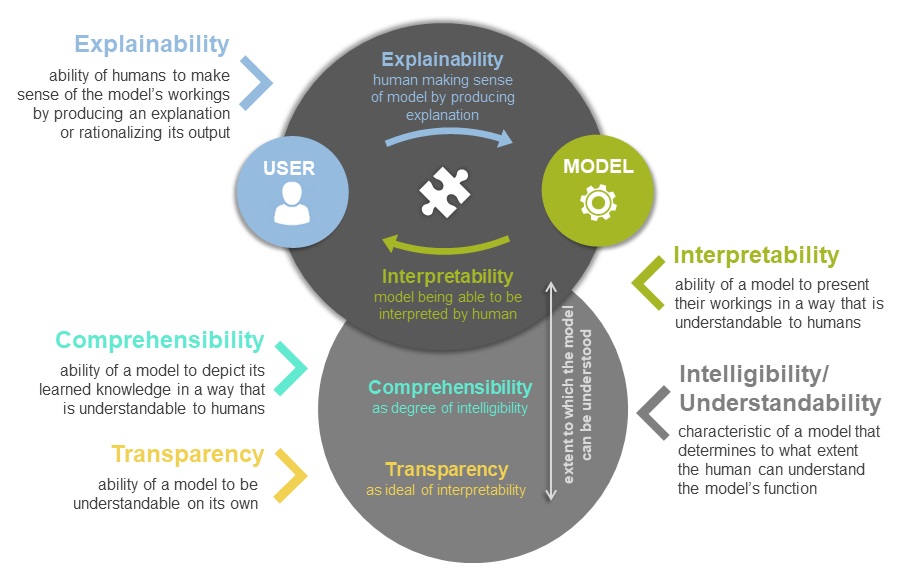By Aviva de Groot, Danny Lämmerhirt, Phillip Lücking, Goda Klumbyte, Evelyn Wan
This is the first in a series of blog posts on experiences gathered during the planning, execution and reflection of our workshop “Lost in Translation: An Interactive Workshop Mapping Interdisciplinary Translations for Epistemic Justice”. The 3-hour session took place in Barcelona in January 2020 at the ACM conference on Fairness, Accountability and Transparency in socio-technical systems (FAT*2020 – now FAccT). The workshop is the collaborative effort of Aviva de Groot, Goda Klumbyte, Phillip Lücking, Danny Lämmerhirt and Evelyn Wan, and was part of the CRAFT stream (“Critiquing Fairness, Accountability and Transparency”). Special thanks also goes to Shazade Jameson and Mara Paun.
The goal of this series is to reflect on creating a shared space for scientists from different backgrounds and, on a broader scope, about working and researching “interdisciplinarily”; a heavily used term today, but one that is more easily called for than eventually put into reality. Specifically, we are interested in responsible interdisciplinary cooperation. Our locus within it, interdisciplinary translations towards epistemic justice, does not so much narrow that space down as it sheds light on our ‘frame of mind’ within it. For a workshop in this space, the art, as we saw it, was to get a feel of what it means to be a conscious actor in that space. We therefore wanted to offer our participants theory, practice, and ‘meta-practice’: step three for the participants and ourselves would be to theorize, or analyse, or at least get a feel, of how the workshop ‘as it happened’ and our behaviour in it reflected the theory we started with.

For starters, let’s talk about epistemic (in)justice as our theoretical frame. For a longer introduction, please see this blogpost. We chose epistemic (in)justice as a conceptual framing for interdisciplinary work for two main reasons. First, it highlights the social and civic responsibility of the researcher. All of us who do research participate in world-making and in that sense are responsible for the knowledge we produce and the sources that we chose to produce it. Secondly, it allows us to draw attention to the fact that interdisciplinarity could be seen as multiplicity of knowledge positions in general, which are not limited to academia but include broader questions about whose knowing is valued and whose isn’t, who is positioned as a worthy subject (researcher) and who/what is a mere object of study.
So, what is epistemic (in)justice?
Some people and communities are unjustifiably privileged over others in knowledge practices: the generation, development, and dissemination of what we accept as reliable knowledge. This imbalance can be called “epistemic injustice”. Following from humanity’s fundamental epistemic interdependence, all of us are necessarily entwined with the social business of knowledge generation. Epistemic hierarchies in societies are the result of social-epistemic dynamics at play within their communities. Where epistemic injustice spells out unjustifiable use of power within knowledge practices, epistemic justice describes proper practices, in acknowledgment of these power/knowledge dynamics. Both concepts feed into each other, and the study of both helps to generate necessary community ‘wokeness’.
For conducting “epistemically just” interdisciplinary research, we need to ensure the epistemic authority that we assert and accept rests on the quality of us as researchers and of our knowledges. When we accept knowledge as something reliable to act on, we trust that it aspires to ‘truth’ – partial and situated as it is – even if that should retain its never-end-state, most of the time. Much knowledge needs to retain its debatability to serve our aims for inclusivity while at the same time we need to acknowledge and understand local dimensions of meaning. The point is not to eliminate our differences but to reconcile our differentness. Not to say that what is true for others is not true for us, but to analyze each other’s contributions to the communal knowledge space and further develop our personal, and thereby our communal faculties.
That means we need to make our methods for knowledge generation understandable and accessible. Not just to others, but to ourselves, for which ーyou guessed correctlyー we need others. Self scrutiny is not only hard, but it inevitably only goes so far. Doubt and trustworthiness connect in this space: to be trustworthy, we should not be too certain.
We believe this concept very much resonates with FAccT-related critical scholarship as well as the calls for diversity of the professional community, discussions around explicit and implicit biases, transparency, quality and disparate impact of ‘big data driven’ knowledge practices, et cetera.
Various strands of critical theory revealed academia as a privilege-driven battlefield of epistemic injustices itself. It is in this spirit that we answer to the call of the same FAccT community towards interdisciplinary cooperation. For science to be a self-assessing practice, interdisciplinary cooperation broadens accountability at least beyond the narrow frame of one’s own discipline. The awkwardness we feel when we need to explain ourselves to our peers potentially affords a glitch to embrace, and re-orient consciously towards creating better knowledge.
So, how can the notion of epistemic justice inform our collaborative practices among computer scientists, data scientists, as well as scholars from humanities and social sciences?
For the workshop, we set out with these insights and challenges in mind:
- The methods we choose to work with in our respective disciplines already imply certain epistemic assumptions
- Interdisciplinary conversations can create fantastic sparks but can also be difficult to bridge
- Placing together groups of people with different languages, habits, cultures, and institutional trainings may be hard – how can we facilitate various forms of translations?
These challenges, as well as the context of FAccT in general, clearly point towards the need to work together. How to do that – this is the question we will address drawing from our workshop results and insights in the next blog post.




Be the first to reply